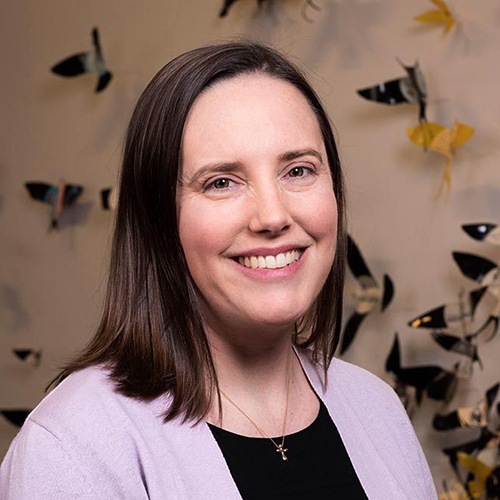Offering an ongoing response to mental health needs
As Mental Health Awareness Month draws to a close, we must continue to be responsive to a national crisis worsened by COVID-19.
As Mental Health Awareness Month draws to a close, we must continue to be responsive to a national crisis worsened by COVID-19.
 Link to author Jessica Young Brown
Link to author Jessica Young Brown
In this pandemic-informed season, churches and their leaders should not feel rushed into decisions that can safely wait for fuller information and deeper discernment, writes a managing director of Leadership Education at Duke Divinity.
 Link to author Victoria Atkinson White
Link to author Victoria Atkinson White
How do you plan for tomorrow in a fractured, fast-moving and ever-evolving world? asks the founding director of Lake Institute on Faith & Giving at the Indiana University Lilly Family School of Philanthropy.
 Link to author William G. Enright
Link to author William G. Enright
As we resume connection, our fears ease and contemplation becomes possible, a priest and a psychologist write.
Congregations should see with new eyes as they re-envision ministries in a world reshaped by twin pandemics, writes the executive director of Leadership Education at Duke Divinity.
 Link to author David L. Odom
Link to author David L. Odom
A practice to promote well-being offers the possibility of joy despite brokenness, writes the director of the Thriving Congregations Coordination Program at Leadership Education at Duke Divinity.
 Link to author Kelly Ryan
Link to author Kelly Ryan
Recognizing the harms done by the last two years, a psychologist who specializes in the intersection of faith and mental health offers some practices to help churches reconnect as communities.
 Link to author Jessica Young Brown
Link to author Jessica Young Brown
A supportive space for pastors where they don’t have to explain their work can be key in preventing isolation in ministry.
 Link to author Ruth Perkins Lee
Link to author Ruth Perkins Lee
The last two years have deepened our experience with grief. As we move into the season of Lent, a pastor and assistant professor asks what has been learned.
 Link to author Timothy Adkins-Jones
Link to author Timothy Adkins-Jones
As churches were forced online, researchers found that congregations actually began to dial into the local needs of their communities.
